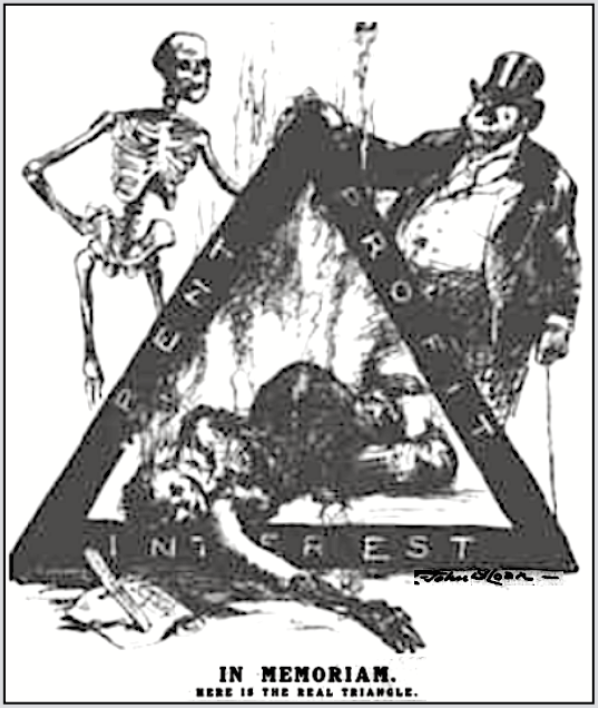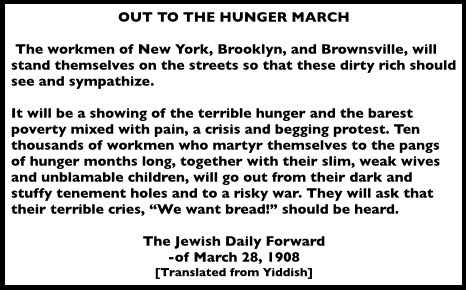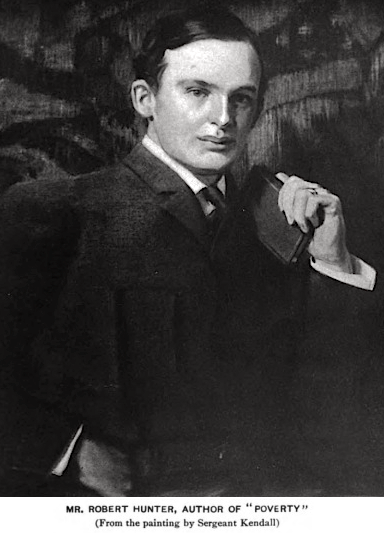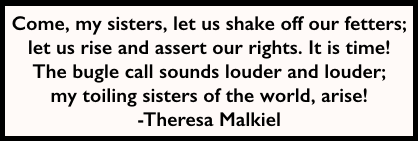 —————
—————
Hellraisers Journal – Monday January 27, 1913
New York, New York – Theresa Malkiel on Suffering of Garment Workers
From The Coming Nation of January 25, 1913:
Striking for the Right to Live
-by Theresa Malkiel
[Part II of III]
The clothing workers have suffered and starved, and, it must be admitted, tried to improve their condition by frequent strikes and attempts at organization. But their organizations, even as their strikes bore local character. One part of the trade, or one branch, or subdivision would go out on the warpath, but its struggle was doomed from the start, for the rest of the industry continued its work as if nothing had happened.
The German hated the Jew, the Jew the Italian, who is trying to wrench the trade from him, the Italian despised the Russian, the Russian the American, the cutter looked down upon the operator, the operator exploited the finisher, the finisher the helper, and while this was going on the employers exploited them all to their heart’s content.
The United Garment Workers of America, though considered the mother body of the clothing trade occupied themselves chiefly with one branch the overall-making, which is mostly in the hands of American women, and paid but little attention to the woes and sorrows of the tailors, perhaps, because the latter was considered beyond redemption.
Thus have men, women and children slaved for over seventy-five years. Thus have thousands upon thousands gone to their early graves, victims of consumption, heart disease, malnutrition, insanity. The man in charge of the claim department of the Workingman’s Circle, most of whose members are garment workers, told the writer that nine-tenths of their members died before they reached the age of forty.
And with the tailors the general public suffered. Unsanitary work-rooms, sweat-shop labor means infection of the garments, and eventually of the public who wear them. Our coats and suits were and still are made in places where smallpox, scarlet fever, diphtheria, measles, consumption and numerous other contagious diseases make great inroads. Our garments are made by workers themselves afflicted with disease, as a matter of fact, the workers in the sweat-shops and tenements not only work on the garments we wear, but often use them to sleep on or to cover themselves with.
Thus have ninety-two million people all over the country been subject to disease and contagion carried to them in their garments from Baltimore, Philadelphia, Chicago, Rochester and New York. For these cities produce 70 per cent of the entire output of man’s and children’s clothing, while New York alone produces one-third of the entire output.
New York was always the largest center in the clothing industry. The city has the natural advantages for production of all grades of clothing. Here, too, a large body of tailors land from Europe, and for the most part remain. The tailors form the nucleus for the better grades of work, while the hundreds of thousands of immigrants landing here yearly enable the employers to obtain cheap labor for the lower grade of garments.
The 125,000 striking garment workers think and say that their strike should be the concern of the entire nation. That their demand for the abolition of the sweat-shop and the subcontracting system should meet the endorsement of every thinking man and woman.
As a matter of fact, even the capitalist press, always ready to slur labor and denounce strikes has exhibited a more human attitude in this strike. It has gone even so far as to express its approval of the abolition of the sweatshop, this perhaps, not because it loves the garment workers so much, but that it wants to protect the general public more.
Then again the sudden display of solidarity has almost taken our newspaper men off their feet. And how wonderful this display is at present can be fully appreciated by an eye witness only. From the highest to the lowest, the few Americans as well as the great body of foreigners, the bulk of Jewish men even as the Italian women stand out for the recognition of their union, for the joint settlement with all branches
“When did the tailor learn this class solidarity? How did he come by it?” ask our upholders of the present regime. They know not, or don’t care to know that the world moved a bit of late, that the progress of evolution, the age of industrialism has advanced the cause of the working class. That the workers are not only firmly-planted on the economic field, but that they have a great political party, the Socialist party, that they have a great press in almost all languages represented in the tailoring industry, the Socialist press.

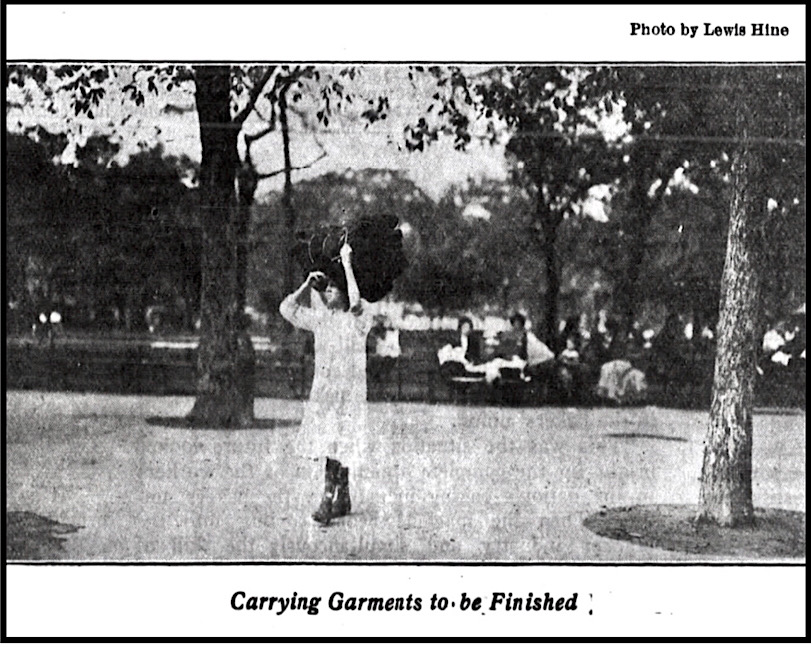
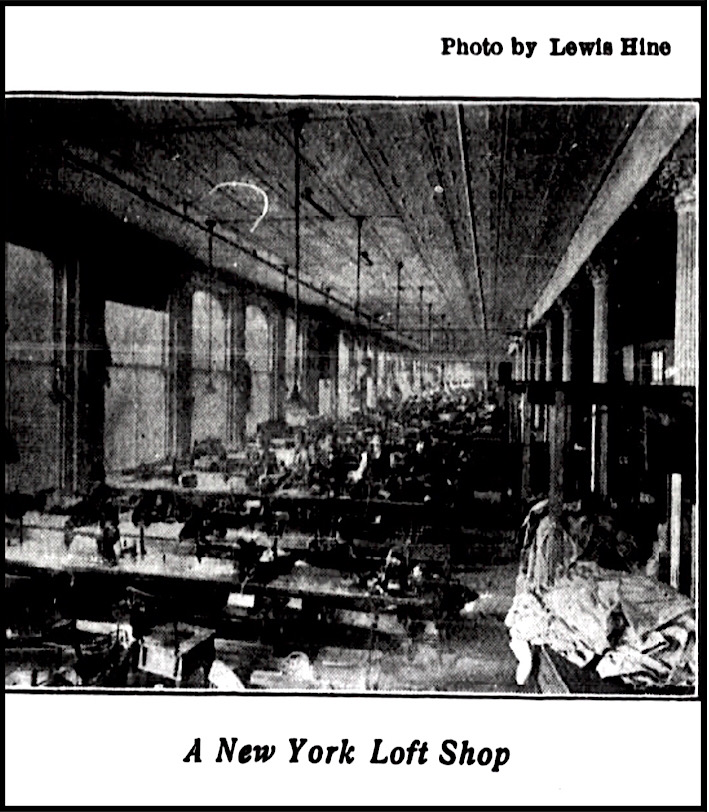
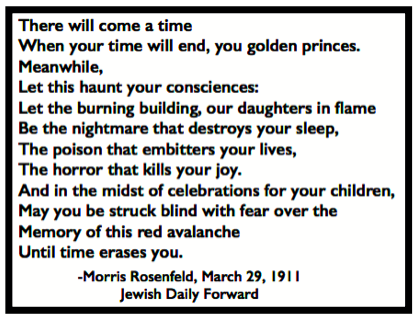 —————
—————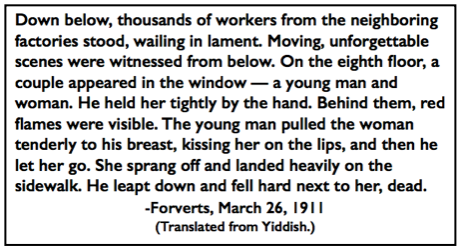 —————
—————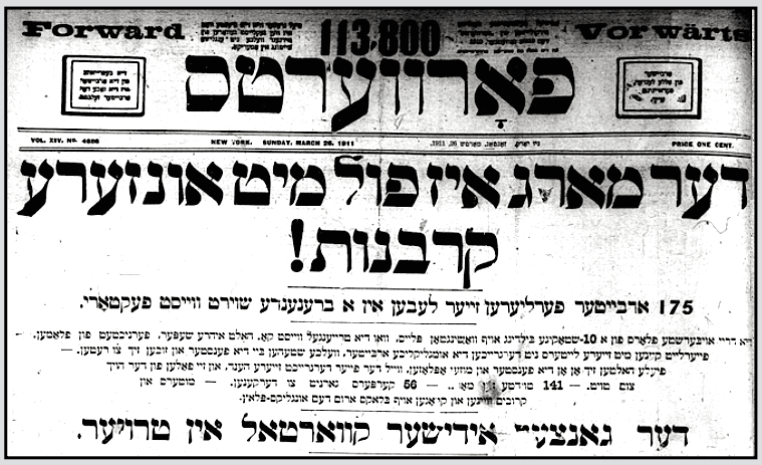
 ———-
———-